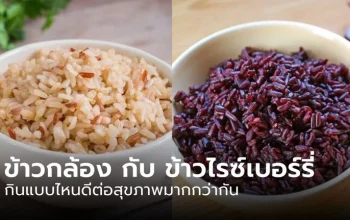How to Lose 20 kg in 2 Weeks Naturally: A Comprehensive Guide
Losing 20 kg in just two weeks might seem like a daunting challenge, but it’s important to approach weight loss with a plan that’s not only effective but also sustainable and healthy. Quick-fix methods often lead to unsatisfactory results, or worse, harm to your body. However, with a natural approach, it’s possible to make significant progress towards your weight loss goal while ensuring your health and well-being.
In this guide, we’ll cover natural methods for shedding pounds, focusing on sustainable eating habits, exercise routines, and lifestyle changes to achieve your desired weight loss.
Is It Possible to Lose 20 kg in 2 Weeks?
Before diving into the methods, it’s essential to acknowledge that losing 20 kg in 2 weeks is an extremely ambitious target. While rapid weight loss is possible, the amount you lose depends on several factors, including your current weight, metabolism, and commitment to drastic lifestyle changes. Medical experts generally recommend aiming for a gradual weight loss of 0.5–1 kg per week. However, extreme situations and fast results often require intense approaches, which may not always be healthy in the long term.
Let’s focus on the safest possible natural ways to achieve the best results in two weeks.
1. Start with a Calorie Deficit
A calorie deficit occurs when you burn more calories than you consume. This is a crucial step in any weight loss journey, and to lose 20 kg, you’ll need a significant calorie reduction. Typically, cutting about 500–1000 calories per day can result in a weekly loss of around 1–2 kg, but for rapid weight loss, a more extreme deficit may be required. To naturally create this calorie deficit, focus on the following:
Eat Whole Foods
- Avoid processed foods: These often contain hidden sugars, unhealthy fats, and high-calorie counts.
- Opt for fresh vegetables and lean proteins: Foods like spinach, kale, chicken breast, tofu, and eggs are filling but low in calories.
- Limit carbs: Focus on consuming complex carbohydrates like quinoa, oats, and sweet potatoes rather than refined carbs like white bread and pasta.
Intermittent Fasting
Intermittent fasting can accelerate calorie deficit by restricting the eating window. The 16:8 method, where you fast for 16 hours and eat only during an 8-hour window, is a popular and natural way to reduce calorie intake. This method allows the body to enter fat-burning mode for extended periods.
2. Increase Water Intake
Water plays an essential role in weight loss, and drinking plenty of it can speed up the process. Staying hydrated can help suppress your appetite and prevent you from mistaking thirst for hunger. Drink at least 3–4 liters of water per day to help flush out toxins, improve digestion, and boost your metabolism.
Drink Water Before Meals
- Drinking a glass of water 20–30 minutes before meals can naturally curb your appetite, helping you consume fewer calories.
Herbal Teas
- Incorporate herbal teas like green tea, peppermint tea, and ginger tea into your daily routine. These teas can aid digestion and increase metabolism, helping you burn fat faster.
3. Focus on Protein-Rich Diets
A high-protein diet can significantly enhance fat burning while preserving muscle mass, which is crucial during rapid weight loss. Protein also has a higher thermic effect compared to carbohydrates and fats, meaning your body burns more calories digesting protein.
Protein Sources to Include:
- Eggs: Low in calories, high in protein, and keeps you full.
- Lean meats: Chicken breast, turkey, and lean cuts of beef are great protein sources.
- Plant-based proteins: Lentils, chickpeas, quinoa, and tofu offer plant-based protein alternatives.
Adding protein to every meal can help curb hunger and provide the necessary energy for your workouts, which leads to faster fat loss.
4. Avoid Sugary and Processed Foods
Sugary and processed foods are major contributors to weight gain. These foods are often high in empty calories that provide little to no nutritional value, leading to excess calorie consumption and fat storage.
Cut Out Sugary Drinks and Snacks
- Eliminate soda, sugary juices, and desserts from your diet. These drinks and snacks are calorie bombs and do nothing to nourish your body.
- Replace sugary snacks with healthier alternatives like fruits, nuts, and vegetables.
Stay Away from Refined Carbs
- Refined carbs like white bread, pastries, and pasta can spike blood sugar levels, leading to hunger cravings and fat storage. Opt for whole grains like quinoa, brown rice, and oats instead.
5. Exercise Regularly: Focus on High-Intensity Interval Training (HIIT)
Exercise is crucial for any weight loss regimen, but when trying to lose weight fast, High-Intensity Interval Training (HIIT) can be particularly effective. HIIT involves alternating between short bursts of intense exercise and brief periods of rest, which helps burn a significant number of calories in a shorter amount of time.
Benefits of HIIT:
- Burns fat more efficiently than steady-state cardio.
- Increases metabolism for hours after your workout, meaning you continue to burn calories even at rest.
- Can be done in 20–30 minutes, making it easier to fit into a busy schedule.
HIIT Workout Examples:
- Burpees: Do 30 seconds of burpees, rest for 10 seconds, and repeat for 15 minutes.
- Jumping jacks: Perform as many jumping jacks as you can for 30 seconds, rest for 10 seconds, and repeat.
- Sprint intervals: Sprint for 30 seconds, then walk for 1 minute. Repeat this cycle for 20 minutes.
6. Get Adequate Sleep
Sleep is often overlooked in weight loss journeys, but it’s just as important as diet and exercise. Poor sleep can increase hunger hormones like ghrelin, while reducing levels of leptin, the hormone that tells your body you’re full. Aim for 7–9 hours of sleep per night to help regulate your appetite, reduce stress levels, and support faster weight loss.
7. Manage Stress Levels
High stress levels can lead to emotional eating and cravings for high-calorie comfort foods. Additionally, stress increases the production of cortisol, a hormone that encourages fat storage, especially around the abdomen.
Ways to Reduce Stress Naturally:
- Meditation and mindfulness practices: These can help calm your mind, reduce stress, and improve your focus on your weight loss goals.
- Exercise: Physical activity not only burns calories but also releases endorphins, the body’s natural stress relievers.
- Spend time outdoors: Nature can have a calming effect, lowering stress levels and enhancing overall well-being.
8. Eat More Fiber
Foods high in fiber help keep you feeling full for longer periods, reducing your overall calorie intake. Fiber also aids in digestion and can help prevent bloating, a common side effect of rapid weight loss.
High-Fiber Foods to Include:
- Vegetables: Broccoli, spinach, and Brussels sprouts are rich in fiber and low in calories.
- Fruits: Apples, berries, and pears are great sources of fiber.
- Whole grains: Brown rice, oats, and quinoa offer excellent fiber content.
9. Cut Down on Salt and Sodium
Excess salt causes water retention, which can make you feel bloated and heavier. Cutting down on sodium not only helps reduce water weight but also improves your overall health. Opt for low-sodium options and avoid processed foods high in salt.
10. Natural Supplements and Herbs
Some natural herbs and supplements can aid in weight loss by boosting metabolism, reducing appetite, and increasing fat burn.
Popular Natural Supplements:
- Green tea extract: Known for its fat-burning properties, green tea extract can boost metabolism and help with weight loss.
- Apple cider vinegar: Consuming 1–2 tablespoons of apple cider vinegar before meals may reduce appetite and promote fat loss.
- Cayenne pepper: This spicy herb contains capsaicin, which can increase metabolism and encourage fat burning.
Conclusion
While losing 20 kg in 2 weeks naturally is an ambitious goal, the key to any successful weight loss journey lies in commitment and making healthy lifestyle changes. Focus on creating a calorie deficit through mindful eating, increasing physical activity, and maintaining consistency with natural methods. Keep in mind that rapid weight loss should always be approached with caution, and it’s essential to consult with a healthcare provider before starting any extreme weight loss plan. Prioritize your health and well-being, and remember that long-term, sustainable habits lead to lasting results.



